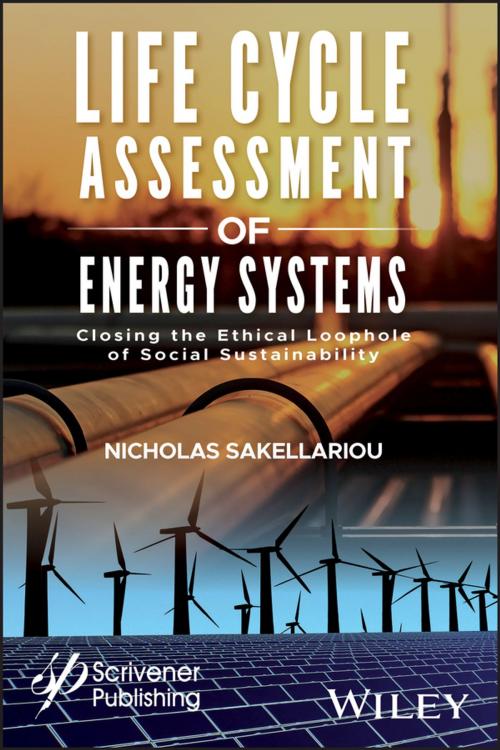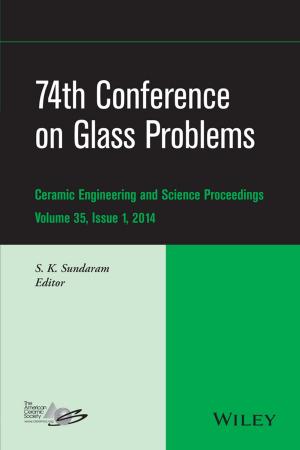Life Cycle Assessment of Energy Systems
Closing the Ethical Loophole of Social Sustainability
Nonfiction, Science & Nature, Science, Physics, Energy| Author: | Nicholas Sakellariou | ISBN: | 9781119418535 |
| Publisher: | Wiley | Publication: | May 4, 2018 |
| Imprint: | Wiley-Scrivener | Language: | English |
| Author: | Nicholas Sakellariou |
| ISBN: | 9781119418535 |
| Publisher: | Wiley |
| Publication: | May 4, 2018 |
| Imprint: | Wiley-Scrivener |
| Language: | English |
Energy and sustainability are two of the most important and often most misunderstood subjects in our world today. As these two subjects have grown in importance over the last few decades, interest in the Life Cycle Assessment (LCA) model has grown as well, as a potentially crucial tool in understanding and striving towards sustainability in energy systems. Not just wind and solar systems, but all energy systems, need to be understood through this model.
Wind and solar power have the potential to decentralize the U.S. energy system by offering local communities electricity and economic support, depending on the scale and design of projects. Nevertheless, every energy technology potentially faces environmental costs, lay and expert opposition, and risks to public health. Engineers play a central role as designers, builders, and operators in energy systems. As they extend their expertise into electrical, mechanical and chemical fields, from fossil fuel-based systems to renewable energy systems, “sustainability” is steadily becoming one of the key criteria engineers apply in their work. This groundbreaking new study argues that engineering cultures foster sustainability by adopting assumptions and problem-solving practices as part of their identities when designing and building engineering projects.
This work examines the politics of creating, utilizing, and modifying Life Cycle Assessment (LCA) in the construction of renewable energy systems. The only volume of its kind ever written, it is a must-have for any engineer, scientist, manager, or other professional working in or interested in Life Cycle Assessment and its relation to energy systems and impact on environmental and economic sustainability.
Energy and sustainability are two of the most important and often most misunderstood subjects in our world today. As these two subjects have grown in importance over the last few decades, interest in the Life Cycle Assessment (LCA) model has grown as well, as a potentially crucial tool in understanding and striving towards sustainability in energy systems. Not just wind and solar systems, but all energy systems, need to be understood through this model.
Wind and solar power have the potential to decentralize the U.S. energy system by offering local communities electricity and economic support, depending on the scale and design of projects. Nevertheless, every energy technology potentially faces environmental costs, lay and expert opposition, and risks to public health. Engineers play a central role as designers, builders, and operators in energy systems. As they extend their expertise into electrical, mechanical and chemical fields, from fossil fuel-based systems to renewable energy systems, “sustainability” is steadily becoming one of the key criteria engineers apply in their work. This groundbreaking new study argues that engineering cultures foster sustainability by adopting assumptions and problem-solving practices as part of their identities when designing and building engineering projects.
This work examines the politics of creating, utilizing, and modifying Life Cycle Assessment (LCA) in the construction of renewable energy systems. The only volume of its kind ever written, it is a must-have for any engineer, scientist, manager, or other professional working in or interested in Life Cycle Assessment and its relation to energy systems and impact on environmental and economic sustainability.















